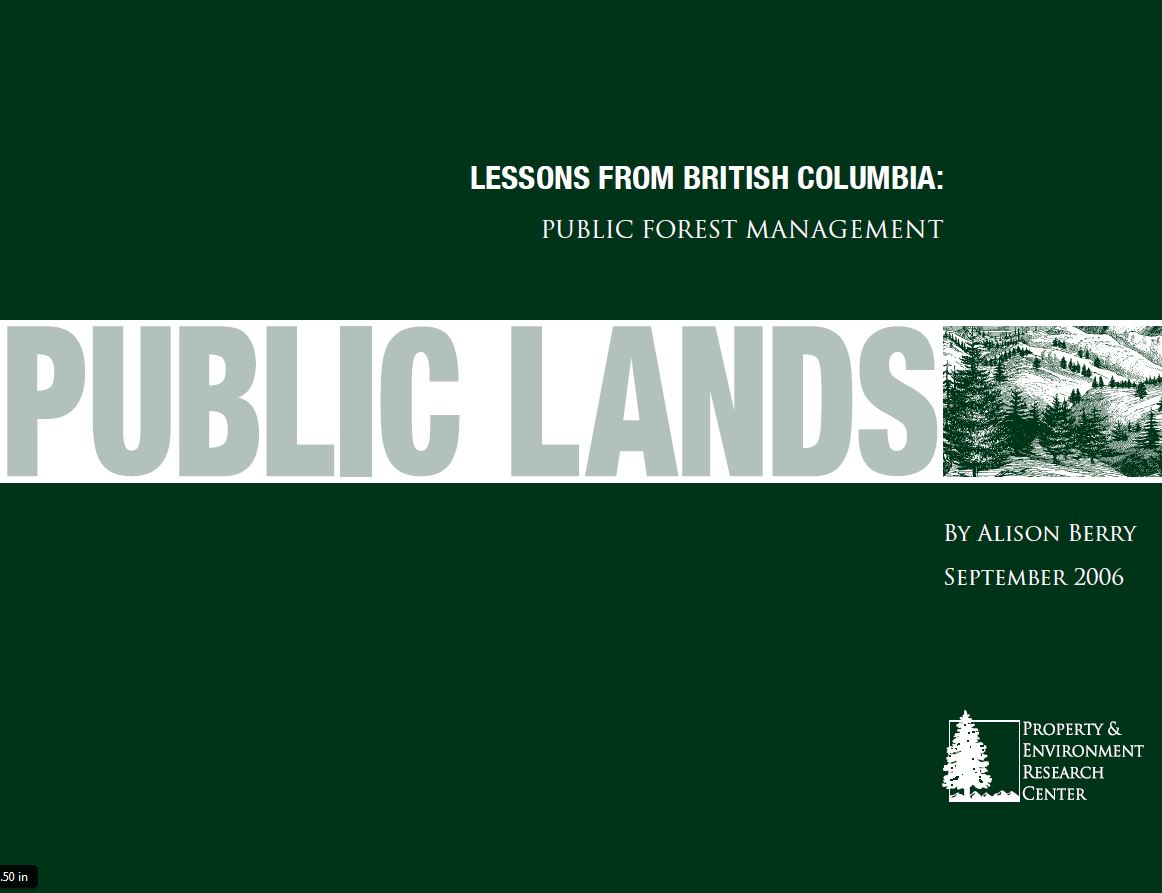Summary

“Lessons from British Columbia: Public Forest Management,” by Alison Berry, explains that the government of the province transfers management responsibilities for most of its forests to the private sector through long-term agreements called tenures, some of which extend for 25 years or more. Some of these tenures resemble private property and provide incentives for reforestation, investment in silviculture, and environmental protection.
This experience with secure, long-term tenures offers valuable lessons for the United States, says Berry. “It would be unnecessary to adopt the British Columbia tenure system as it exists,” says Berry, “but the United States could use the timber tenure system as a model for creating a more flexible timber program that addresses multiple resources such as recreation.” Berry notes that the U.S. Forest Service suffers detrimental effects from its short-term timber sales program. The new paper also includes case studies illustrating how some British Columbia tenures operate.
Berry is a research fellow with PERC. She graduated from the University of Vermont and has a master’s degree in forestry from the University of Montana. She has worked for the USDA Forest Service in Montana as a supervisory botanist and a forest technician and has Forest Service certiï¬cation as a ï¬reï¬ghter and sawyer. This is her second paper on Canadian forestry. The ï¬rst was Branching Out: Case Studies in Canadian Forest Management.
This essay is the fifth in PERC’s Public Lands Reports, initiated by Holly L. Fretwell and Linda E. Platts (all of the reports are available on this site). Jane S. Shaw edited the essay and Mandy-Scott Bachelier supervised layout and production. It was supported by the Dufresne Foundation and the M. J. Murdock Charitable Trust.


